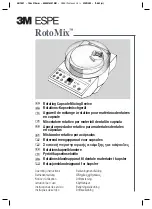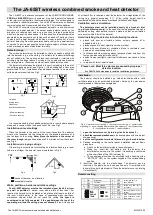
3
NANOLASER series
Laser safety and operating instructions
•
Do not operate laser without first reading and understanding all safety and technical data in this man-
ual.
•
This laser product can potentially cause instant eye injury or blindness if laser light directly strikes the
eyes.
•
Do not point lasers at people or animals.
•
Do not point lasers at highly reflective surfaces such as windows, mirrors and shiny metal. Even laser
reflections can be hazardous.
•
Never look into the laser aperture or laser beams.
•
Do not expose the output optic (aperture) to cleaning chemicals.
•
Do not use laser if housing is damaged or open, or if optics appear damaged in any way.
•
Never open the laser housing. The high laser power levels inside of the protective housing can start
fires, burn skin and will cause instant eye injury.
•
After set up, and prior to public use, test laser to ensure proper function. Do not use if any defect is
detected. Do not use if laser emits only one or two laser beams rather than dozens/hundreds, as this
could indicate damage to the diffraction grating optic, and could allow emission of higher laser levels
above Class 3R.
•
Never leave this device running unattended.
•
The operation of a class 3R laser show is only allowed if the show is controlled by a skilled and well-
trained operator, familiar with the data included in this manual.
•
The legal requirements for using laser entertainment products vary from country to country. The user
is responsible for the legal requirements at the location/country of use.
•
According to international safety regulations the laser must be installed so that the laser beam has a
minimum distance of 3 m to the floor when persons stand or sit under the beam. However, the unit
can also be installed so that in the horizontal plane the laser beam keeps a minimum distance of 2.5 m
to persons.
IMPORTANT
The unit must be installed so that nobody will be able to look directly into the laser beam. Already a short
radiation on the retina may cause permanent damage. Unintentional reflections must be prevented. The
laser system must not be operated without the presence of a laser protection adviser. In case of absence,
this advisor should have secured the laser beam with the key switch against unauthorized operation.
















































